
Photo
The Darlington Police Department in 1984 had both women and African-Americans as uniformed officers. Courtesy of the Darlington County Historical Commission.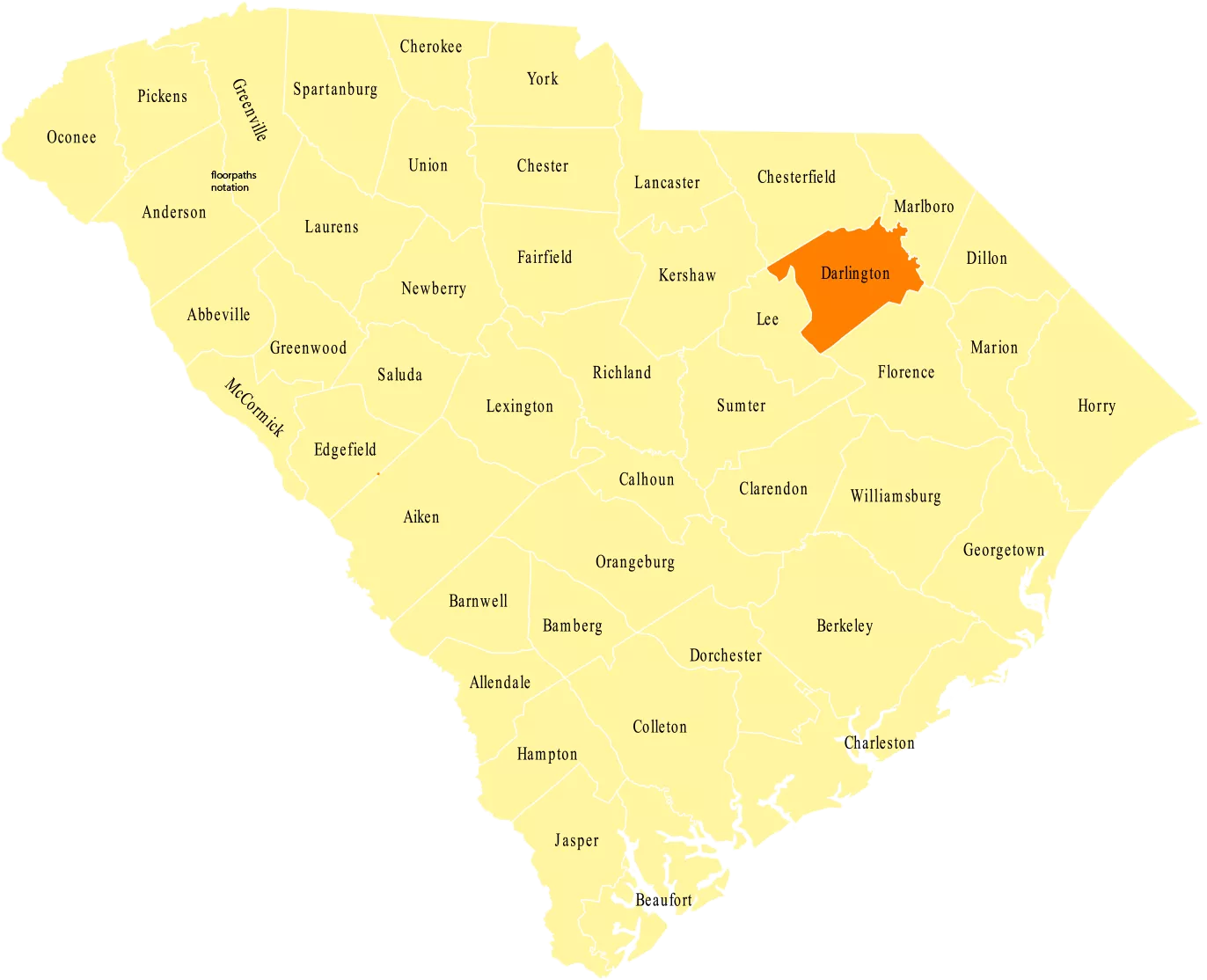
Part of the Pee Dee region of South Carolina, Darlington County got its start when Welsh Baptists settled in the area and began to farm indigo, flax and other crops along the Welsh Neck of the Pee Dee River. These early settlers resulted in a strong Baptist presence, and the first non-Baptist place of worship did not exist in Darlington County until the late 18th century.
Initially part of the Cheraws District, Darlington became its own district in 1789. In 1868, Darlington District became Darlington County, but in the late 19th and early 20th centuries, the county lost about third of its size to the creation of Florence and Lee counties. Darlington serves as the county seat. Though no one is certain on the reason for the name Darlington, it is thought to be a reference to Darlington, England.
Historically, cotton farming and railroads contributed most to the county’s economy. Agriculture has remained important in Darlington County, although cotton farming has given way to the farming of other crops, such as tobacco. The county is principally known for Darlington Raceway, which is an important venue for stock car racing.
County History. Accessed June 02, 2016. http://www.darcosc.com/residents/county_history.php

Photo
The Darlington Police Department in 1984 had both women and African-Americans as uniformed officers. Courtesy of the Darlington County Historical Commission.
Photo
Both white and African-American Baptists practice adult baptism by immersion as an important sacrament. This baptismal celebration of an African-American Baptist church in Darlington County took place...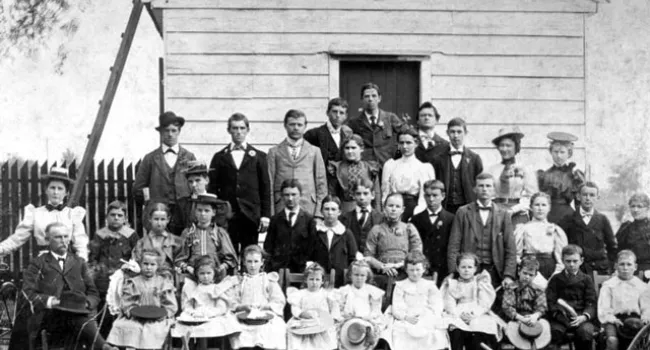
Photo
John J. Dargan was the principal and a teacher, and Gena Dargan a teacher, in Dargan's School in Darlington, photographed May 18, 1899.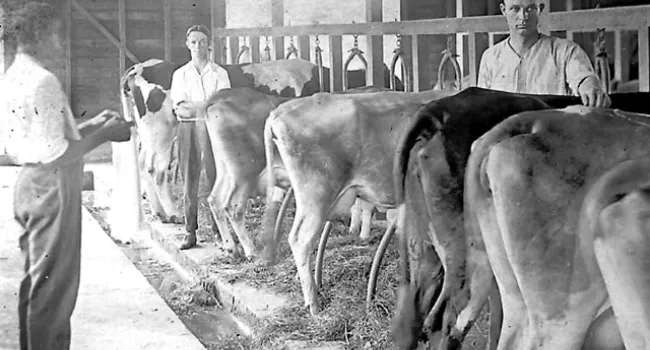
Photo
James Alford, Ernest Staton, and Bright Stevenson work in the interior of the Staton Dairy barn in Darlington County around 1923. Courtesy of the Darlington County Historical Commission.
Photo
State and County Fair competitions were an important way for farmers to exchange information about their crops and livestock. Until the 1960s, separate segregated fairs were held, both in individual...
Photo
The advent of steam farm equipment did not make horsepower immediately out of date. Here, in October 1918 at the J.L. Coker farm in Hartsville, a steam tractor and horse-drawn wagons work together to...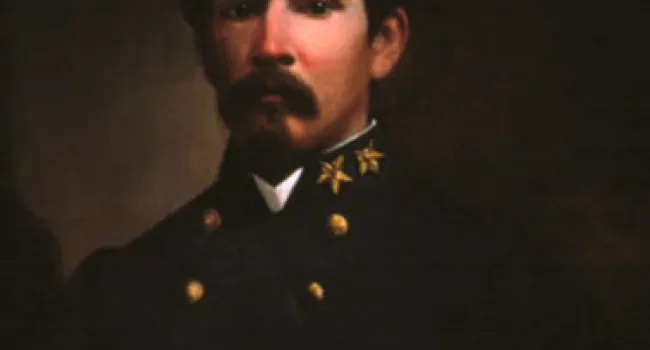
Photo
Col. Alonzo T. Dargan ( -1864), a son of the Darlington County family by that name, was painted by William H. Scarborough (1812-1871) in his Confederate uniform at the beginning of the Civil War. He...
Photo
Born near Society Hill, James Lide Coker (1837-1918) attended local schools, the South Carolina Military Institute of Charleston, and Harvard University, where he received specialized agricultural...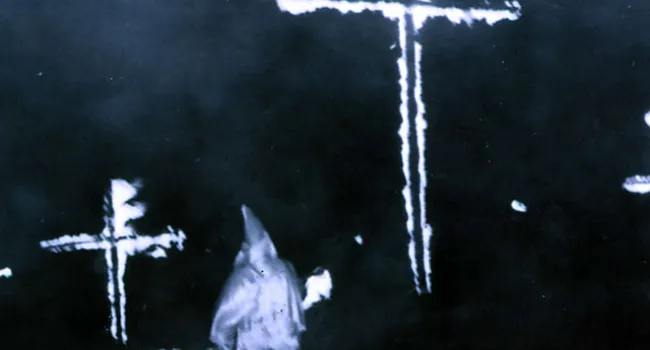
Photo
Conservative opposition to the gains of the civil rights and student anti-war protests led to a brief resurgence of the Ku Klux Klan in South Carolina in the 1960s and 1970s. This KKK meeting was held...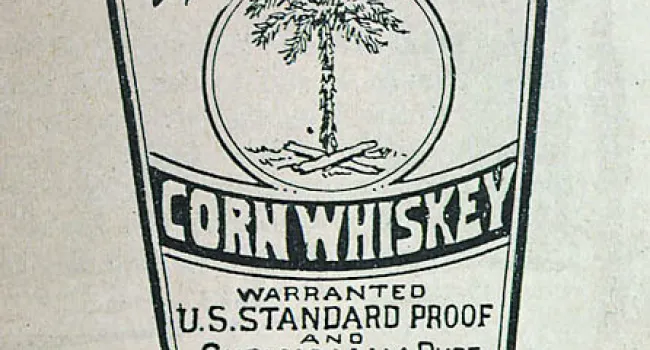
Photo
The official Dispensary liquor label. One of the most controversial political issues in a period when political controversy dominated state politics, was the State Dispensary, a plan under which all...